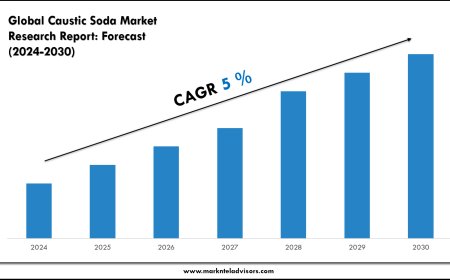Tax Implications of Saudi Arabia’s Public-Private Partnership Projects
Guidance on the tax implications of Public-Private Partnership (PPP) projects in Saudi Arabia, covering VAT, Zakat, and corporate tax considerations to ensure compliance and financial efficiency.

As part ofVision 2030, Saudi Arabia is accelerating the transformation of its economy by expanding the role of the private sector in delivering public services and infrastructure. Public-Private Partnership (PPP) projects are central to this effort, particularly in sectors such as transport, healthcare, education, and utilities.
While PPPs offer long-term opportunities for both local and foreign investors, they also introduce complex financial, legal, and regulatory considerationsparticularly related to taxation. A skilled tax expert plays a critical role in navigating these complexities to ensure compliance, optimize returns, and mitigate risk.
This article examines the key tax implications of Saudi PPPs and highlights the strategic importance of tax advisory for investors and developers involved in these transformative projects.
Understanding Saudi Arabias PPP Framework
The Saudi PPP landscape is shaped by several key developments:
-
National Center for Privatization & PPP (NCP): The lead agency overseeing the privatization program and developing regulatory frameworks.
-
Private Sector Participation Law (PSP Law): Enacted in 2021, this law provides legal structure and guarantees for PPP contracts.
-
Attractive investment models: BOT (Build-Operate-Transfer), BOO (Build-Own-Operate), and performance-based contracting are commonly used.
-
Government support: Includes sovereign guarantees, land grants, and co-financing for eligible projects.
Despite these incentives, the tax implications of PPPs can be significantand must be thoroughly understood before project execution.
Key Tax Considerations in Saudi PPPs
Foreign and local participants in PPP projects face a variety of direct and indirect tax implications, including:
1. Withholding Tax (WHT)
Saudi Arabia imposes withholding tax on payments made to non-resident entities for services, royalties, and interest. For foreign investors in PPPs, this is a key issue:
-
Service fees paid to offshore consultants or contractors may attract WHT of up to 15%.
-
Interest on debt financing sourced from foreign banks may be subject to 5% WHT.
-
Royalties or technical services may incur 15% WHT.
A tax expert can help structure contracts and payment flows to minimize or defer WHT liabilities where possiblesuch as through double taxation treaties (DTTs).
2. Zakat and Corporate Income Tax
In Saudi Arabia, tax treatment depends on the investors nationality:
-
Foreign-owned entities are subject to 20% corporate income tax.
-
GCC nationals and Saudi individuals are subject to Zakat at 2.5% of the Zakat base.
-
Mixed-ownership entities are partially subject to both.
PPP participants must understand their tax profile early to avoid costly errors in tax treatment. Accurate entity classification and capital structure planningguided by a tax expertare critical to avoid dual obligations.
3. Value-Added Tax (VAT)
Saudi Arabia has implemented 15% VAT on most goods and services. In PPP projects, VAT applies to:
-
Construction services
-
Procurement of equipment and materials
-
Operation and maintenance contracts
-
Subcontractor payments
Input VAT may be recoverable, but only if the entity is registered and compliant. Failure to account for VAT obligations during bidding or contracting can significantly erode project margins.
4. Transfer Pricing Compliance
Multinational companies engaged in PPPs must comply with Saudi transfer pricing (TP) regulations. This includes:
-
Filing TP disclosures and Country-by-Country Reports (CbCR)
-
Documenting intercompany transactions (e.g., loans, management fees)
-
Ensuring pricing reflects an arms length standard
Given the long-term nature and cross-border capital flows in PPPs, TP planning is essential. Tax experts support compliance and reduce audit risk through robust documentation and risk assessments.
5. Customs Duties and Exemptions
Many PPPs involve large-scale import of construction equipment and materials. Understanding customs duty exemptions is crucial:
-
Certain infrastructure projects may qualify for duty-free status
-
Tax experts help navigate regulatory applications for exemptions
-
Misclassification or errors can lead to penalties or import delays
Early engagement with customs authorities and legal advisors ensures that import strategies are aligned with cost and time objectives.
The Role of a Tax Expert in PPP Projects
A tax expert serves as a strategic advisor at every stage of a PPP project, including:
1. Pre-Bid Tax Structuring
Before bidding, tax professionals assess the optimal investment vehicle, holding structure, and capital financing plan based on:
-
Local tax laws
-
Double taxation treaties
-
Profit repatriation strategies
-
Risk-sharing mechanisms with the public sector
This early planning is crucial to ensure tax efficiency over the 20-30 year lifespan of most PPP contracts.
2. Contractual Tax Clauses Review
Tax experts help review and negotiate PPP contracts to ensure:
-
Tax obligations are clearly assigned
-
Tax change protection clauses are included
-
Compensation mechanisms are in place for future tax law changes
These provisions protect the investor from future regulatory shifts that could impact returns.
3. Regulatory Filings and Ongoing Compliance
Once operational, PPP entities must maintain full compliance with:
-
ZATCA (Zakat, Tax and Customs Authority) regulations
-
Quarterly and annual tax filings
-
TP and VAT documentation requirements
-
Tax audit readiness
A tax expert ensures filings are timely, accurate, and defensible under scrutiny.
Risks of Inadequate Tax Planning
Failure to engage qualified tax advisors during a PPP project can result in:
-
Underestimated tax liabilities
-
Unexpected VAT or WHT exposure
-
Double taxation due to poor treaty planning
-
Penalties and reputational risk due to non-compliance
-
Disputes with public sector counterparts
For multinational investors, poor tax planning can significantly reduce IRR and jeopardize future opportunities in the Kingdom.
Case Study: Tax Structuring for a Healthcare PPP
A European consortium bidding on a Saudi healthcare PPP engaged a tax expert to evaluate three different investment models:
-
Direct investment via offshore parent
-
Local SPV with partial Saudi ownership
-
Joint venture with a local partner
The advisor recommended a hybrid structure that maximized treaty benefits, minimized WHT, and allowed full VAT input recovery. Over the 25-year concession, this structure saved the consortium over $40 million in taxes and ensured full compliance with Saudi regulations.
Conclusion
As Saudi Arabia ramps up its infrastructure transformation through PPPs, tax implications will increasingly shape the success or failure of these long-term investments. The complexity of tax laws, coupled with evolving regulatory oversight, requires specialized expertise and proactive planning.
Engaging a tax expert is not just a compliance measureits a strategic advantage. With the right guidance, investors and developers can maximize value, mitigate risks, and contribute to the Kingdoms ambitious growth vision with confidence.
Read More
Advisory Solutions for Holding Company Structures in the Kingdom
Strategic Tax Planning for Saudi Arabia's Tourism and Entertainment Sector
Tax Advisory for Healthcare and Pharmaceutical Companies in Saudi Arabia





































